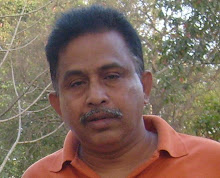Health providers, program managers, policy makers, and donors are increasingly aware that gender is a critical element in the design, management, and implementation of reproductive health programs, and ultimately, in the success and impact of these programs. Reproductive health services that meet both men’s and women’s needs will encourage increased use of those services and promote sound reproductive decisions.
In Bangladesh like many countries, traditional male and female roles deter couples from discussing sexual matters, and may even encourage risky sexual behavior. Ultimately, they contribute to poor reproductive health for both men and women. For example, when women play subservient roles and men have the authority to make critical decisions without consulting their wives, there may be little or no discussion of sexual activity, fertility, contraceptive use, and limited access to health information and services, finances, transportation and other resources. Or, when traditional attitudes and expectations about masculinity prevail, men may be encouraged to have multiple sex partners and expose them—and their partners—to risks of disease.
A "gender perspective" prompts attention to these destructive patterns and ways to build constructive relationships between women and men.
